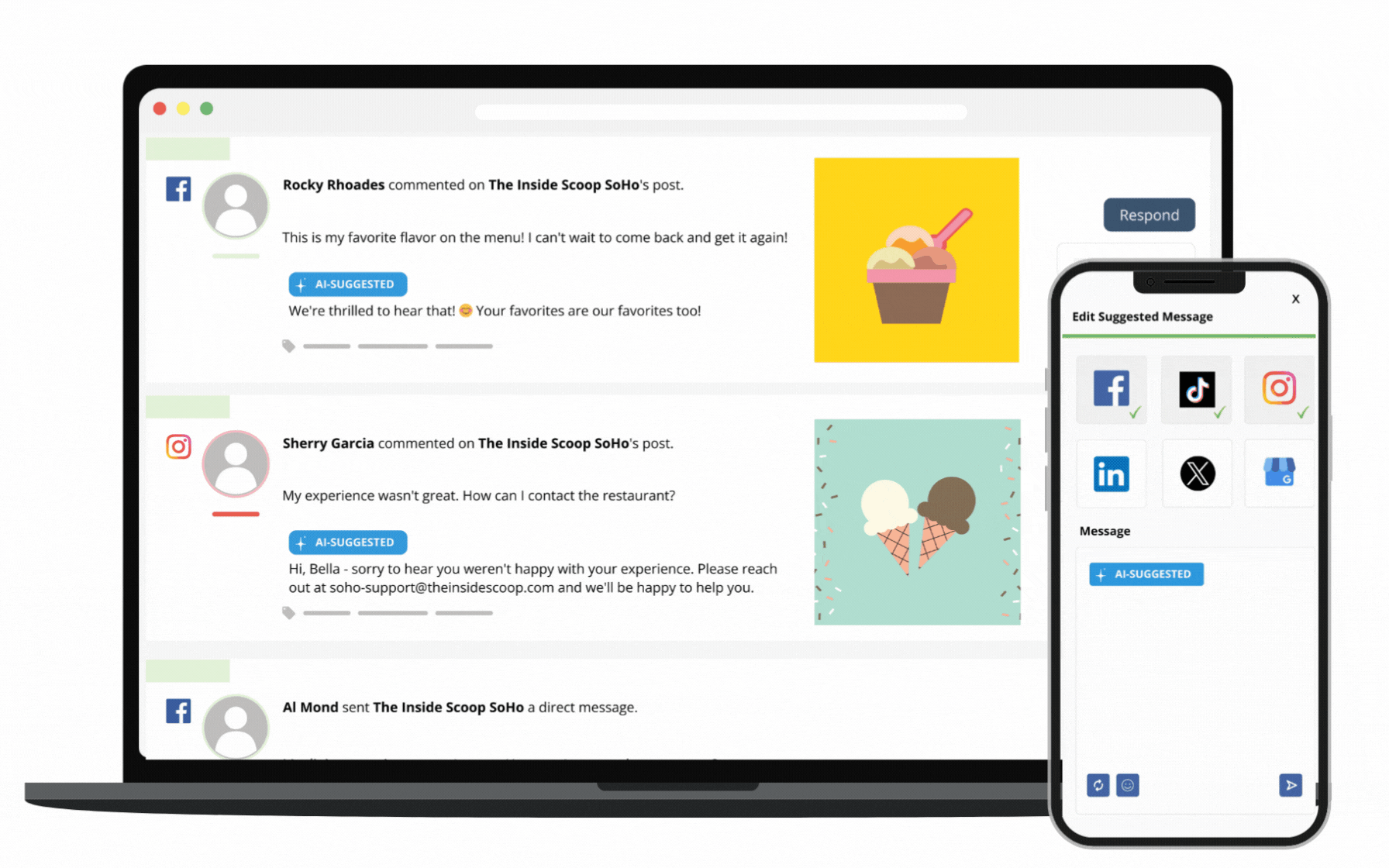How AI Has Transformed the 2024 Holiday Marketing Landscape: Three Key Strategies
Generative AI for Marketing: 5 Best Uses Cases

Generative AI for Marketing: 5 Best Uses Cases
Today, we’re at an inflection point with technology. Right now, artificial intelligence (AI) is changing how people and businesses interact with technology and the world. AI is also heavily impacting marketers. Our research found that:- Eighty-two percent of marketers are already familiar with generative AI tools
- Almost two-thirds of marketers have incorporated generative AI in their marketing technology (MarTech) stack.
- Nearly 7 in 10 marketers believe that marketers leveraging AI will replace those that don’t.

Generative AI is a type of artificial intelligence technology that uses deep-learning models and relies on trained data to generate various types of content, such as text, imagery, videos, and other forms of data.This advanced technology enables marketers to streamline content creation, personalize their customer journey, and derive powerful insights from data analysis.
Five Critical Generative AI Marketing Use Cases
As mentioned, generative AI has multiple uses, from idea and content generation to improving the customer experience (CX) and journey. Learn five valuable ways to incorporate generative AI into your marketing efforts.1. Brainstorming and Idea Generation
As marketers, we know how challenging it is to develop novel campaign ideas or engaging copy. Generative AI can help you brainstorm new creative concepts or inspire you to approach a marketing campaign differently. For instance, you can ask a generative AI tool like OpenAI’s ChatGPT to help you develop a campaign around an upcoming event your brand is hosting. Additionally, the AI can come up with catchy slogans or taglines to use in promotional content. X. Furthermore, current AI, like our Genius Social product, can generate new social media ideas based on your historical data and what performed best previously. More on this later!2. Create Content
As noted earlier, 65% of marketers have incorporated generative AI tools into their MarTech stacks. Many of these marketers use generative AI to help create:- Blog outlines and articles
- Social media posts or captions
- Emails
- Code snippets
- Internal reports or slide decks
- Transcripts
- Images
- Videos
- Meta descriptions
- Alt text
3. Upgrade Your Search Engine Optimization (SEO)
According to one 2023 survey, 86% of enterprise SEO professionals already use generative AI. Why do so many SEOs use generative AI? The technology can automate repetitive tasks, like discovering topic clusters, conducting keyword research, identifying competitor gaps, and producing SEO-driven content. Content and SEO technology that utilizes generative AI and helps automate these repetitive tasks is already available. Take Jasper or Semrush, for example. Furthermore, if you want to improve your local listings, a key component of a strong local SEO strategy, we’re launching Genius Listings. It’s an automation layer to our SOCi Listings product and will help improve local stores’ online search visibility and rankings.4. Analyze and Extract Data to Personalize the CX
Generative AI has the exceptional capability to analyze vast amounts of data and offer valuable recommendations. The technology can help you organize customer data, categorize it via sentiment analysis, and make personalized recommendations. For instance, envision a large multi-location retail corporation, where each store receives a high volume of social media and website engagements and online reviews. With the help of AI, this multi-location enterprise could organize that data and track patterns, such as common unanswered questions or complaints about a specific product line. These insights can help the retail brand modify its following product line or update the FAQ section of its website. Generative AI can revolutionize your customer experience and journey by giving you once unobtainable data points and implementing them into your marketing efforts.5. Enhance Customer Support
Last but not least, generative AI can enhance your customer support. Consider chatbots. They’re not new and have been around since the 1960s. However, recent generative AI and machine learning advancements have drastically improved chatbots’ capabilities. Now, generative AI’s growing data-analysis abilities can help you better train chatbots on your customer data. This data leads to more accurate and helpful responses. For instance, chatbots analyze conversation histories and behavioral patterns to provide tailored and personalized responses. Furthermore, with generative AI, you can have more omnichannel support. You can use generative AI to respond to customers via:- Website or app chatbots
- Social media platforms
- Telephone
Generative AI Marketing Risks
As advanced as generative AI is, it’s not perfect. Below are some of the most common risks to be aware of and ways to prevent them. Inaccuracies or Hallucinations Sometimes, generative AI’s output isn’t always accurate and contains misleading information. We encourage human oversight and to regularly monitor AI-generated content to catch these hallucinations and ensure all information is correct. You can also fine-tune your AI models based on user feedback to enhance the reliability and accuracy of AI systems. Bias Generative AI models learn from existing datasets. It’s nearly impossible for the data not to have biases. These biases can arise from the algorithms, models, or training data. To reduce these biases, try implementing the following tactics in your generative AI datasets or ensure the MarTech vendors you’re vetting are doing so:- Include a diverse team in the development process
- Employ diverse and representative datasets
- Regularly audit and update algorithms
Generative AI Software for Multi-Location Marketing
As you can tell, generative AI has tremendous benefits and many use cases for your marketing department and business. If you’re a multi-location brand, generative AI can save you even more time and resources as you market across 100s or 1,000s of business locations. SOCi is here to help. SOCi is the CoMarketing Cloud for multi-location enterprises. We recently released Genius Reviews and Genius Social. Both have our AI automation layer, SOCi Genius, added to our core products. They use AI to respond to reviews and social engagements, and to create on-brand and localized social media content. They also rely on historical data from each location to generate the most accurate, helpful, and engaging responses or content for each location.






